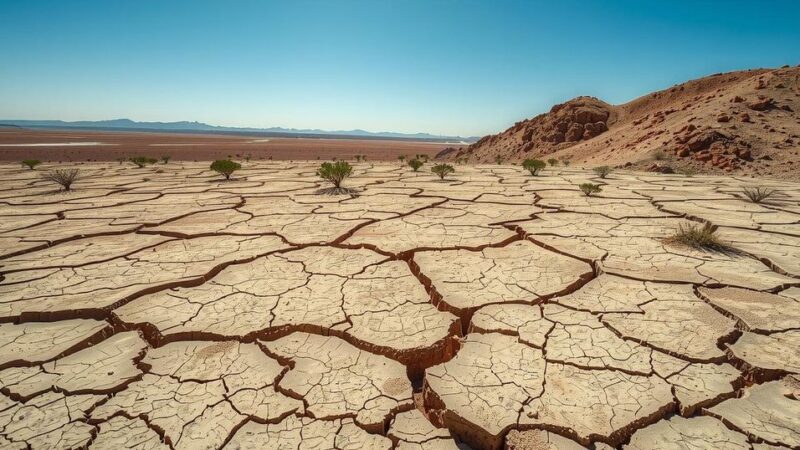In 2024, the world faced unprecedented climate disasters, marked by record-breaking temperatures, floods, and cyclones. Death tolls soared, infrastructure was devastated, and economic losses reached $310 billion. Regions from Saudi Arabia to Mayotte bore the brunt of extreme weather, highlighting the urgent need for decisive climate action.
The year 2024 marked a significant shift in the global landscape as climate change wreaked havoc across continents. Spanning from impoverished regions like Mayotte to affluent countries such as Saudi Arabia, no area was immune to the repercussions of escalating climate disasters. The country recorded unprecedented temperatures and intense extreme weather, prompting experts to attest that nearly all disasters were exacerbated by climate change. Notably, climate scientist Friederike Otto expressed concern, stating, ‘The impacts of fossil fuel warming have never been clearer or more devastating than in 2024.’ Extreme heat inflicted tragic losses globally, resulting in thousands of fatalities, particularly during events like the Muslim hajj pilgrimage in Saudi Arabia, where temperatures soared to alarming heights.
In addition to heatwaves, the consequences of climate change manifested through unprecedented rainfall patterns, leading to severe floods. The United Arab Emirates experienced two years’ worth of rain in a single day, paralyzing key infrastructure such as Dubai’s international airport. Simultaneously, regions like Kenya grappled with the dual challenges of drought followed by historic flooding, forcing millions into dire conditions. Flood-related disasters in West and Central Africa alone claimed more than 1,500 lives, showcasing the cascading effects of these climatic shifts.
Cyclones also surged in intensity as warmer ocean temperatures propelled their ferocity. Major hurricanes impacted both the United States and Caribbean nations, with the Philippines suffering from multiple severe storms within a short time frame. Notably, Cyclone Chino intensified to a Category 4 storm, inflicting significant damage on Mayotte, underscoring the perilous connection between global warming and tropical cyclones.
Furthermore, while some regions experienced excessive rainfall, others plunged into drought, resulting in devastating wildfires across the Americas. Millions of hectares were scorched, impacting ecosystems and air quality. The World Food Programme reported that worsening conditions projected 26 million individuals at risk of hunger in southern Africa due to prolonged droughts, further complicating the humanitarian crisis.
The economic implications of these disastrous events have been staggering. Swiss Re, a Zurich-based reinsurance firm, assessed the global damage from extreme weather events in 2024 to be approximately $310 billion. In the United States alone, weather-related disasters claimed 24 events with losses exceeding $1 billion each. Such economic strains compound the already critical humanitarian crises faced by nations worldwide as they struggle to recover from these staggering impacts.
The ongoing discourse surrounding climate change has highlighted the unprecedented climatic anomalies occurring globally. The year 2024 was characterized by heightened temperatures, unusual weather patterns, and a substantive increase in extreme events such as floods, cyclones, and droughts. The direct correlation between human activities, particularly fossil fuel consumption, and climate change has become increasingly evident. This escalation of disasters not only poses a grave threat to human life but also jeopardizes global economies, underscoring the urgent need for comprehensive climate action and disaster preparedness.
In conclusion, the year 2024 serves as a stark reminder of the tangible impacts of climate change, with countries worldwide experiencing unprecedented extremes in weather. The cascading effects of these disasters have led to significant loss of life, economic hardship, and a deepening humanitarian crisis. It is imperative for global leaders and communities to prioritize climate resilience and sustainable practices to mitigate future disasters and safeguard vulnerable populations.
Original Source: theglobepost.com






